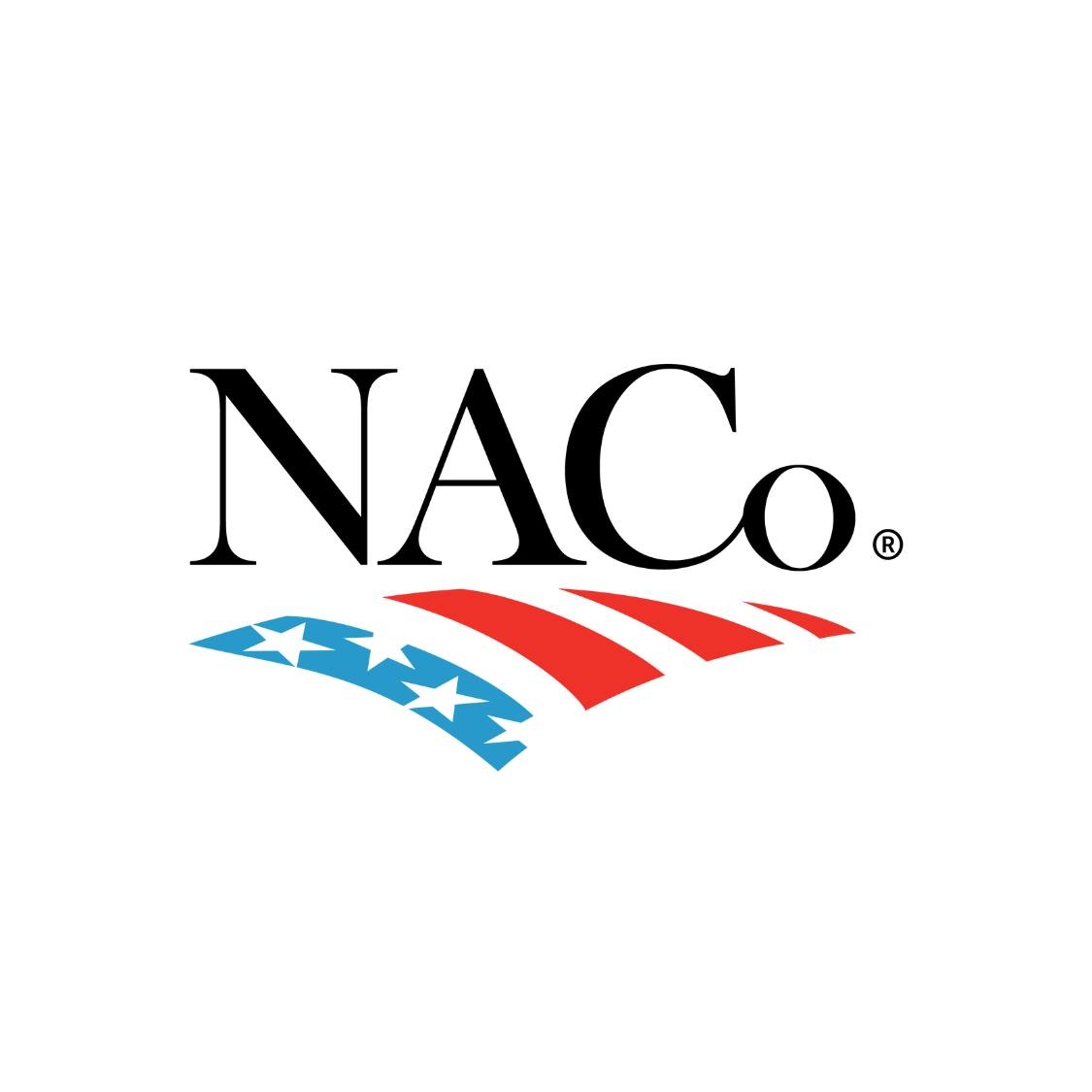We Are Counties
We Are Counties
From urban to rural, large to small, America’s 3,069 counties, parishes and boroughs keep our communities healthy, vibrant and safe, working with intergovernmental, community and private partners to deliver where it matters most: in our communities.
We Are Counties highlights the essential role counties play across every part of community life. Explore the issue areas below, follow us on social media for the latest from the campaign, get your county involved and explore our full suite of educational materials diving deep on counties.
Our Impact
Elections, Records & Services
Counties create economic vitality, safeguard elections, preserve vital records and invest in our community spaces.
Transportation & Infrastructure
Counties build and maintain the infrastructure that keeps America moving—from roads and bridges to transit, airports and public utilities.
Health & Human Services
Counties deliver essential health and human services that support residents at every stage of life and strengthen community well-being.
First Responders
Counties administer justice, lead during emergencies and protect public safety.
Stewards of Public Lands
Counties steward America’s public lands, delivering essential services that support access and safety for residents and visitors.
WE ARE FIRST RESPONDERS
Counties administer justice, lead on emergencies and protect public safety.
We invest more than $124 billion annually in justice systems and public safety and serve as vital emergency managers and first responders.
Services include:
- 911 call centers and emergency response
- Law enforcement and corrections
- Courts and judicial facilities
- Juvenile justice and youth services
- Disaster preparedness and recovery
- Coroner and medical examiner services
Justice & Public Safety Expenditures – 2022
Counties invest more than $124 billion annually in justice and public safety.
483K
County first responders
Counties employ 483,000 firefighters, sheriffs, EMTs and other first responders.
$182.7B
Disaster damages
In 2024 alone, the nation experienced 27 separate billion-dollar disaster events, with total damages reaching approximately $182.7 billion.
1/3
Counties facing a disaster in a year
Up to one-third of counties face a major natural disaster in a single year, requiring county leadership and investment before, during and after these devastating events
WE ARE ELECTIONS, RECORDS & SERVICES
Counties deliver for our communities—promoting economic vitality, safeguarding elections, upholding justice, preserving vital records and investing in the community spaces where we gather, learn and thrive.
Services include:
- Public records and vital documents
- Elections, polling places and voter services
- Community development and workforce readiness
- Housing and homelessness assistance
- Libraries, arts and cultural programs
- Parks, open space and recreation
- Tax assessment and collection
630K
Poll workings
Counties support more than 630,000 poll workers, protecting the integrity of our democracy at the local level.
$12B
Invested in county parks
Over $12 billion invested annually in county parks and recreational opportunities
$17B
Invested in housing & community development
More than $17 billion invested annually in housing and community development
WE ARE HEALTH AND HUMAN SERVICES
Counties care for people at every stage of life—protecting public health and delivering critical medical, behavioral and long-term care services.
We invest $130+ billion annually in community health with hospitals, public health, behavioral health and care for our most vulnerable residents.
Services include:
- Public hospitals and clinics
- Behavioral and mental health care
- Indigent and safety-net healthcare
- Nursing homes and long-term care
- Public health and inspections
- Substance abuse treatment
County Expenditure in Health
Counties annually invest over $130 billion in community health systems, including behavioral health services.
900
Public Hospitals
Counties own or support over 900 public hospitals with over 532,000 hospital and healthcare workers, and operate more than 700 long-term care facilities.
1,900
Local public health departments
More than 1,900 local health departments leading on public health and community wellbeing
County role in providing mental health services by states
In 40 states plus the District of Columbia, at least one mental health facility is operated by a regional or county authority, while in 48, at least one facility accepts county or local government funds as a source of payment, and across 33 states, counties are actively engaged in delivering traditional mental health services to residents.
750
Behavioral health authorities focused on mental health
Counties operate more than 750 behavioral health authorities focused on mental health, substance abuse and individuals with disabilities.
Populations experiencing mental illness and substance abuse
WE ARE TRANSPORTATION & INFRASTRUCTURE
Counties power essential infrastructure that connects communities, fuels local economies and keeps America moving.
We invest $146+ billion each year in roads, bridges, transit and critical public infrastructure.
Services include:
- Roads, bridges and trails
- Public transportation systems
- Airports and intermodal ports
- Solid waste and recycling
- Water, wastewater and stormwater systems
- Utilities such as gas and electricity
Share of county-owned road miles
Counties own 44 percent of all public road miles in the United States – 1.8 million miles in total – more than any other level of government.
$32B
County investment towards highways
County governments invest over $32 billion annually towards the maintenance, operation, repair and construction of toll and non-toll highways.
38%
County-owned bridges
Counties own and maintain 38 percent of the 610,000 bridges that compose the National Bridge Inventory, and 61 percent of our nation's more than 280,000 off-system bridges.
County-supported transit agencies
Counties are involved in 40 percent of public transit systems across the nation.
34%
County-involved airports
Counties are involved in the operation of 34 percent of airports, and invest over $7 billion in air transportation for the provision, operation, construction and support of airport facilities
$19B
County investments in mass transit
Annually, counties invest more than $19 billion in the operation, maintenance and construction of public mass transit systems, including subways, surface rails, ferries and buses.
WE ARE STEWARDS OF PUBLIC LANDS
Counties deliver essential services supporting federally managed public lands—serving residents, visitors and partners.
62% of counties—over 1,700 counties—are home to non-taxable federal lands.
Services include:
- Emergency management
- Search and rescue
- Fire protection and law enforcement
- Road and bridge maintenance
- Environmental stewardship
- Solid waste and recycling disposal
- Tourism management and visitor services
Total PILT Entitled Land
Nearly two-thirds of counties have federally-owned lands within our jurisdictions.
Payments in Lieu of Taxes (PILT) land reflects the amount of federally owned land in a county.
640M
Acres of federal land
Across more than 1,700 counties, local governments help manage 640 million acres of federally owned public land
300M
National park vistors
National Park Service sites average more than 300 million recreation visits annually
Follow Us
Follow NACo on social media for the latest We Are Counties content, including videos, stories and examples highlighting the essential role counties play in communities across the country.
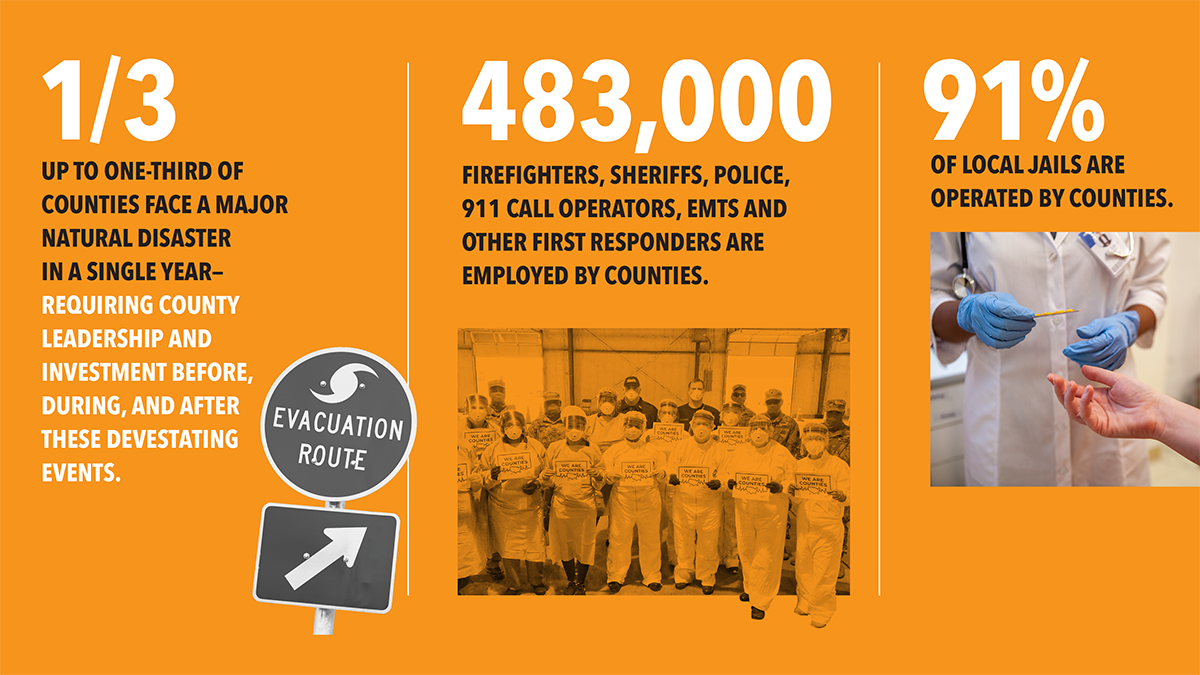
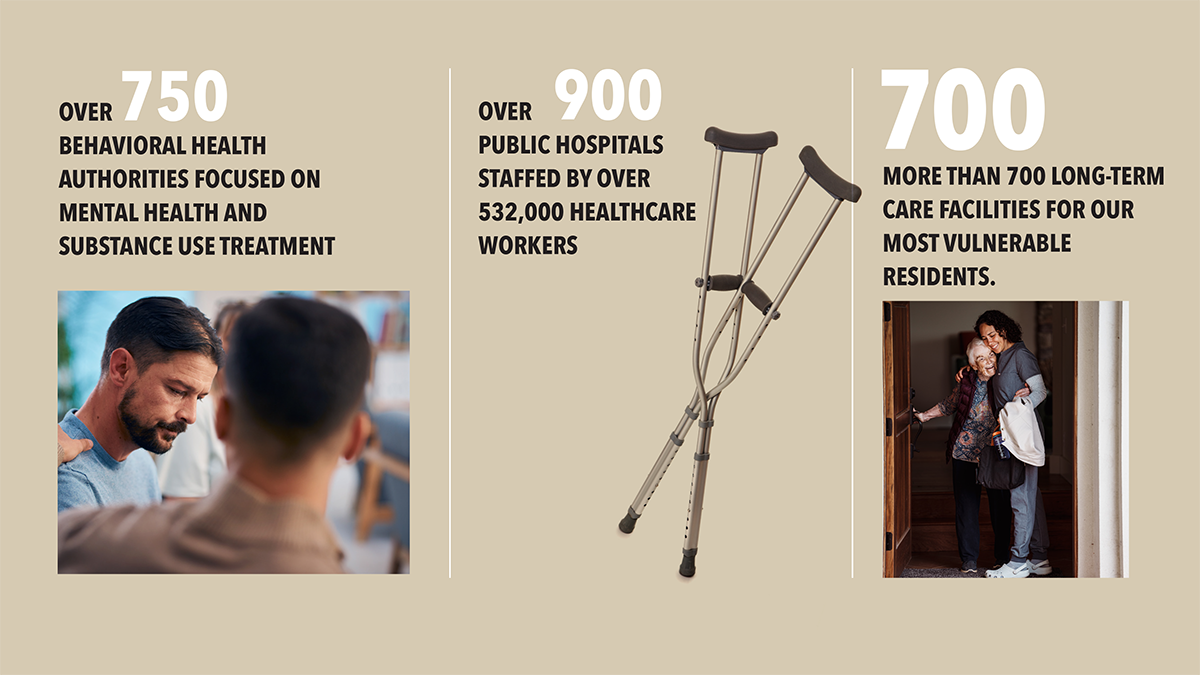
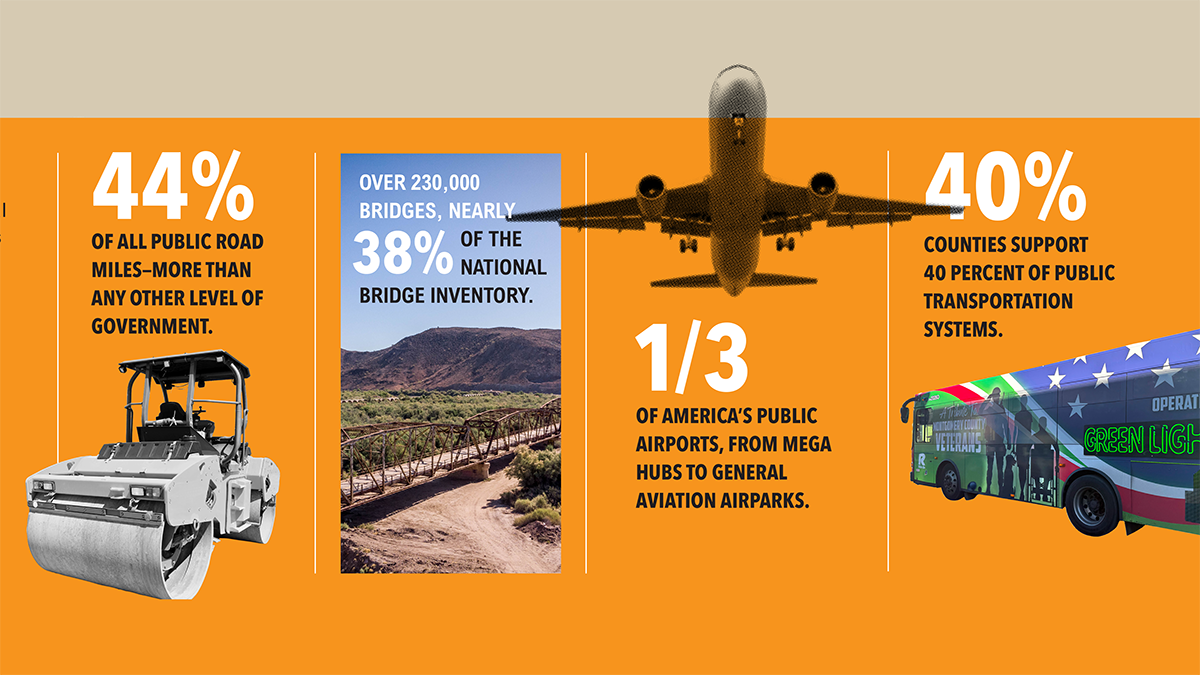
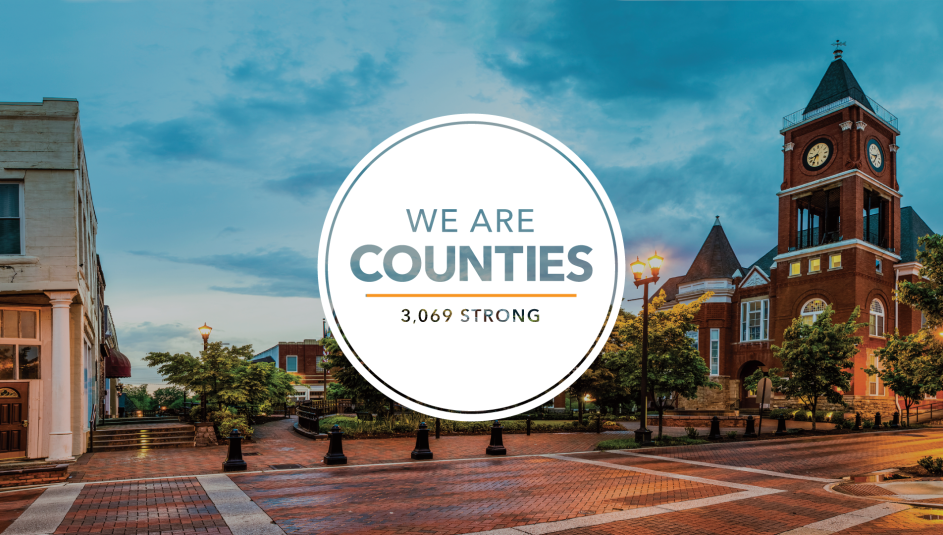
Join the Campaign
Counties and state associations are invited to join the We Are Counties campaign using NACo’s participation toolkit, which features ready-to-use graphic templates, sample social media posts and media outreach tools.
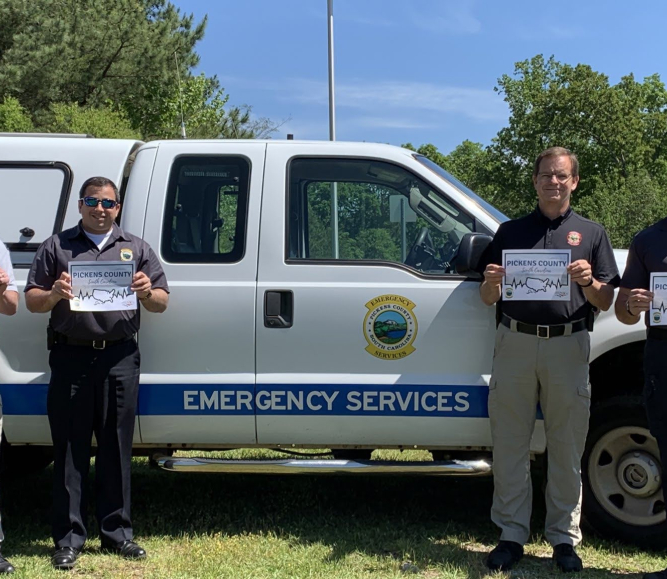
More from NACo
Learn More About Counties
Explore NACo's full suite of resources on how county governments operate and the critical role we play in serving residents.

Counties 101
Your introduction to county government. Learn how counties are on the front lines, delivering vital services for our residents.

The County Landscape Project
Whether examining the organizational structures, financial frameworks, essential services or intergovernmental roles of counties, the project serves as a critical reference for understanding county government at its core.
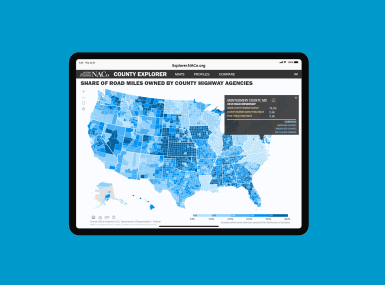
County Explorer Data
An interactive mapping tool featuring the latest available data for all 3,069 U.S. counties across 14 categories, more than 100 datasets, over 1,000 indicators and more than 10 types of county and state profiles.
Civic Engagement Resources
Find tools to tell the county story. Explore below or click here for NACo's full library of civic engagement resources.

National County Government Month
Held each April, NCGM is an annual celebration of county government. NACo equips counties with template materials, social media graphics, and more resources to kick off the month of recognition.

Achievement Awards
The Achievement Awards is a non-competitive awards program recognizing innovative county government programs. Award-winning programs are featured in NACo content and celebrated at NACo's Annual Conference.
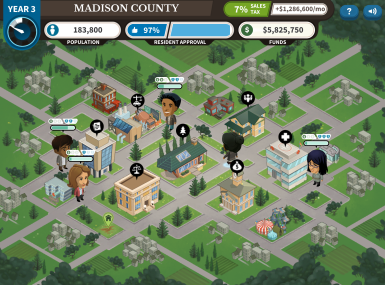
Counties Work Game & Curriculum
NACo, together with iCivics, has created an online game and curriculum to educate students grade levels 6-12 about the important role and functions of county government.
Presidential Spotlight: County Storytellers
Under the leadership of NACo President J.D. Clark, NACo will explore the art and science of powerful, purposeful stories.
